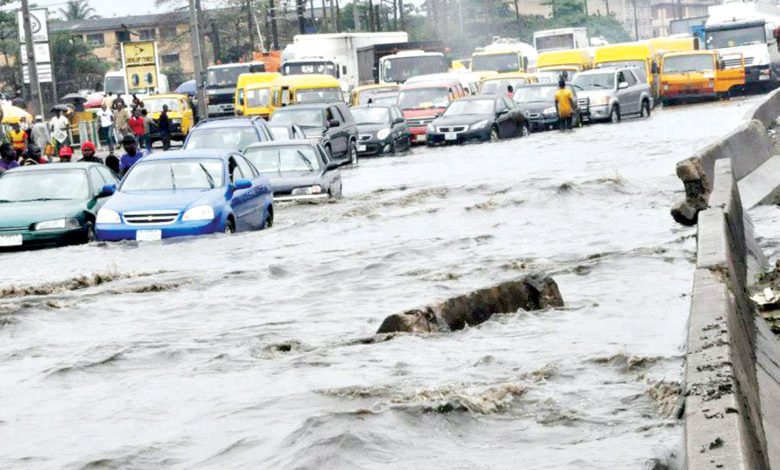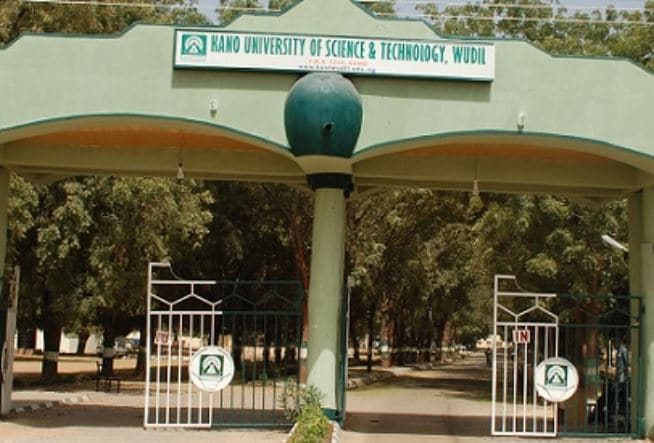
• Economists Accuse Governors Of Fiscal Recklessness
• Say No Projects To Justify Huge Resources Earned By States
• Nigerians Seem Uninterested In How Their Funds Are Spent – Uba
• DG Of Governors’ Forum Keeps Mum
President Bola Ahmed Tinubu’s plea with the 36 states governors to ensure the payment of all salary, gratuities and pension arrears as a way of putting money into the hands of the people, especially now that states get more monthly Federal Account Allocation Committee (FAAC) revenue following the removal of petrol subsidy, may have justified the allegation of fiscal recklessness levied against the governors by the economists.
Indeed, the financial experts have flayed the level of fiscal recklessness and insufficient investment in the economy at the state level, hence the acute hunger, poverty and unemployment in the country.
Penultimate Thursday, the President, during a meeting with the governors at the State House, Abuja, had urged the state chief executives to “spend the money, don’t spend the people.”
He also implored governors to create more economic opportunities for the youths in their states to keep them more productively engaged.
The President’s admonition to the governors came amid the disclosure by the National Bureau of Statistics (NBS) that the 36 states of the federation and the Federal Capital Territory (FCT) got a whopping sum of N6.58 trillion from the FAAC in 2023.
The breakdown of the allocation to the states, which was sourced from the NBS website, shows that Delta State was allocated N483.57 billion in the year under review followed by Rivers State, which got N426.84 billion.
Akwa Ibom State got N380.1 billion within the period; Lagos State, N371.39 billion; Bayelsa State, N268.34 billion; Kano State, N261.37 billion; Oyo State, N207.37 billion while Katsina State got N191.43 billion.
Borno State, which is ravaged by Boko Haram insurgency and banditry, was allocated N176.94 billion while Jigawa State got N170.91 billion.
Benue State collected N161.99 billion; Edo State, N161.69 billion; Anambra State N161.54 billion while Ondo State got N156.33 billion.
Niger State was allocated the sum of N155.62 billion; Imo State got N152.39 billion; the FCT, N145.3 billion; Sokoto State N146.19 billion while the sum of N144.98 billion was allocated to Bauchi State.
Kebbi and Osun states got N143.93 billion and N141.48 billion respectively.
The sum of N139.14 billion went to Adamawa State; N136.97 billion was allocated to Kogi State; Enugu State got N133.29 billion; Abia State got N125.92 billion while Yobe State was allocated N124.14 billion.
Taraba, Plateau and Ogun states got N123.05 billion, N121.71 billion and N120.72 billion in that order.
Zamfara State received N119.17 billion; Cross River State was allocated the sum of N118.8 billion; Kwara State got N115.11 billion while Nasarawa State received the sum of N111.54 billion.
Ekiti State was allocated N107.5 billion; Ebonyi State, N107.45 billion while Gombe State got N99.05.
The net allocation to the six geo-political zones in 2023 shows that the South-South zone got N1.84 trillion; the North West received N1.20 trillion while N1.10 trillion went to the South West zone. The sum of N948.24 billion went to the North Central; North East got N807.30 billion and South East got N680.59 billion.
The breakdown further indicated that Southern Nigeria got N3.62 trillion while N2.96 trillion went to Northern Nigeria.
A certified public accountant, Prof. Chiwuike Uba, while flaying fiscal recklessness at the sub-national level said the same situation applies to the national level.
He submitted that this stems from a lack of transparency and accountability to the people as well as the docility of the people who seem to be uninterested in how their funds are spent.
He added: “It is not enough to have N6.5 trillion, as you mentioned. But more importantly, how those funds are spent and on what. If you look at the state governments’ budgets and analyse them, you find out that over 70 per cent of their budget goes into recurrent expenditure.”
Uba lamented that about 30 per cent that is spent on capital projects is too paltry to make meaning in the lives of the people.
“Yeah, we focus on growth, which is good because growth helps to bring development. But the big question is that the roads that are being constructed, where are they being constructed? How are the states intentional in supporting agricultural development?” he asked.
The scholar also faulted the purchasing of grains by the government, declaring that the decision has rather aggravated the poverty and acute hunger at the grassroots level.
“The idea of purchasing grain that was done earlier on by the Federal Government, is in which sense? Because the state government has a fixed approach that creates additional problems. What you end up doing is that you mop up the available goods in the market; the same market the poor people go to purchase goods. You purchase those goods with available funds and give to the same state government apparatus that is responsible for deepening poverty and hunger at the state level to share to the people and the grains end up among themselves. The mopping of grains in the markets then creates additional problems. So, you have scarcity in the place which ends up increasing the prices of goods,” he explained.
Uba pointed to the rising food inflation to buttress his assertion. He further identified insecurity, misplaced priorities and post-harvest losses as other factors responsible for the spreading of hunger in the country.
His words: “We are having insecurity that is not allowing people to farm and produce. We are not having roads that lead to where these goods are produced. Therefore, we have a lot of what is called post-harvest losses. And insecurity is not helping. Then eventually the ones that are brought to the market are mopped up and end up in the hands of those who really wouldn’t need them.
“So, the state governments must begin to make real investments in those areas. Since we are having food insecurity now, the state governments need to act, and the Federal Government also needs to put money into agriculture, not just by saying we are supporting agriculture.”
He urged the Federal Government to support key people in the agricultural value chain by providing them with business support facilities such as tractors, seedlings and fertilisers, saying the government must end insecurity and build roads that would lead from places where food is produced to the markets where it is needed.
“The government must also make investments in storage and preservation of our produce, thereby giving them value added. So, when you do that, you can cushion the short-term events of scarcity of food. The state governments need to rethink the budget beyond announcing big figures that end up not being spent on anything concrete,” he noted.
Another economist, Paul Alaje, identified Lagos and Rivers states as the most thriving states in Nigeria in terms of innovation and provision of amenities.
“Most states, apart from Lagos and Rivers, spend their money on recurrent expenditures in terms of salaries payments and some other money is going into security votes that are unaccountable,” he stated.
Alaje argued that most of the economic activities going on in the states are not measured and are not even reported in some state budgets. He added: “When you look at what goes to them and when you add their Internally Generated Revenue (IGR), you wonder why many people are still languishing in poverty. This happens because most of the money given to them is not invested in the economy.
“While the money shared to the 36 states of the federation has ballooned due to the removal of the petrol subsidy and liberalisation of the foreign exchange market, the expected outcome has been vague.
“All these are happening because there are no sufficient investments in this economy. This President has been magnanimous to the state governments. The policy of subsidy removal and the unification of naira are two major policies that boosted Nigeria’s revenue. But what has happened? You know, from over N600 billion to more than a trillion naira now goes to the state governments.
“The question is: Is it reflecting? The answer is no. It is not reflected in the lives of the people. The sub-nationals should know that the way out of the economic quagmire is not by promoting consumption. The way of coming out of the economic quagmire, if they want to be like Lagos, is to have a viable private sector that can employ people, that are capable of also paying taxes, that can expand the economic frontiers of their states. That is when they can compete at a national level. That is when they can be part of a national.”
A former General Secretary of the Nigeria Labour Congress (NLC), Dr. Peter Ozo-Eson, expressed sadness over the huge sums of money that are available to the state governments in contrast with rampaging hunger in the land.
His words: “So, if state governors got N6.5 trillion over 12 months and you still have this level of hunger, despondency and insecurity, where did all the money go? If you talk about the amount that went to the states, in the same way, the proportion of the sharing that went to the federal and translates to nothingness or pales into insignificance.
“We the Nigerian people are unable to see the results of such amounts or what it has been used for. That is the crux of the matter.”
He bemoaned the removal of development from the national agenda in the last couple of years, saying: “In the past 10 or so years or more, development has been removed completely from the agenda. Our governments are no longer focused on development. When you hear of these trillions that come into the hands of our governors, of our presidents, of local government chairmen, all the money cannot be accounted for.
There are no projects to say these are what we did with this money. That is why we have a country where 70-90 per cent of the population is now living in poverty.”
He expressed worries over huge liquidity in the system, which promotes official corruption. “There is a huge amount of liquid cash circulating all over the place, invading the foreign exchange market and therefore depreciating the naira and various other things. This is a sad development,” he said.
For a Retired banker, Ande Mohammed, there was nothing inspiring from the outcome of the meeting the President had with governors.
“We are talking about an immediate solution to hunger and they are talking about state policing.
“Anyway, it is time the president faced the Nigerian people, felt the pulse of the nation and told us what exactly his agenda is via a TV interview.
“People are arguing that he is being shielded from the pain of the masses. He now has an opportunity to appear before the press and be asked pertinent questions about issues facing the common man.”
Efforts by The Guardian to get response of the Director-General of Nigerian Governors’ Forum, Asishana Okauru, did not yield fruits as he did not respond to calls as well as the Whatapp message sent to his telephone number.
The chat sent to him reads: “We have a story that the states earned about N6.5trillion in 2023 yet not much is on the ground, hence the hunger in the land. Even Tinubu’s plea with them to spend on the people suggested that they were not doing enough despite the resources at their disposal.”













